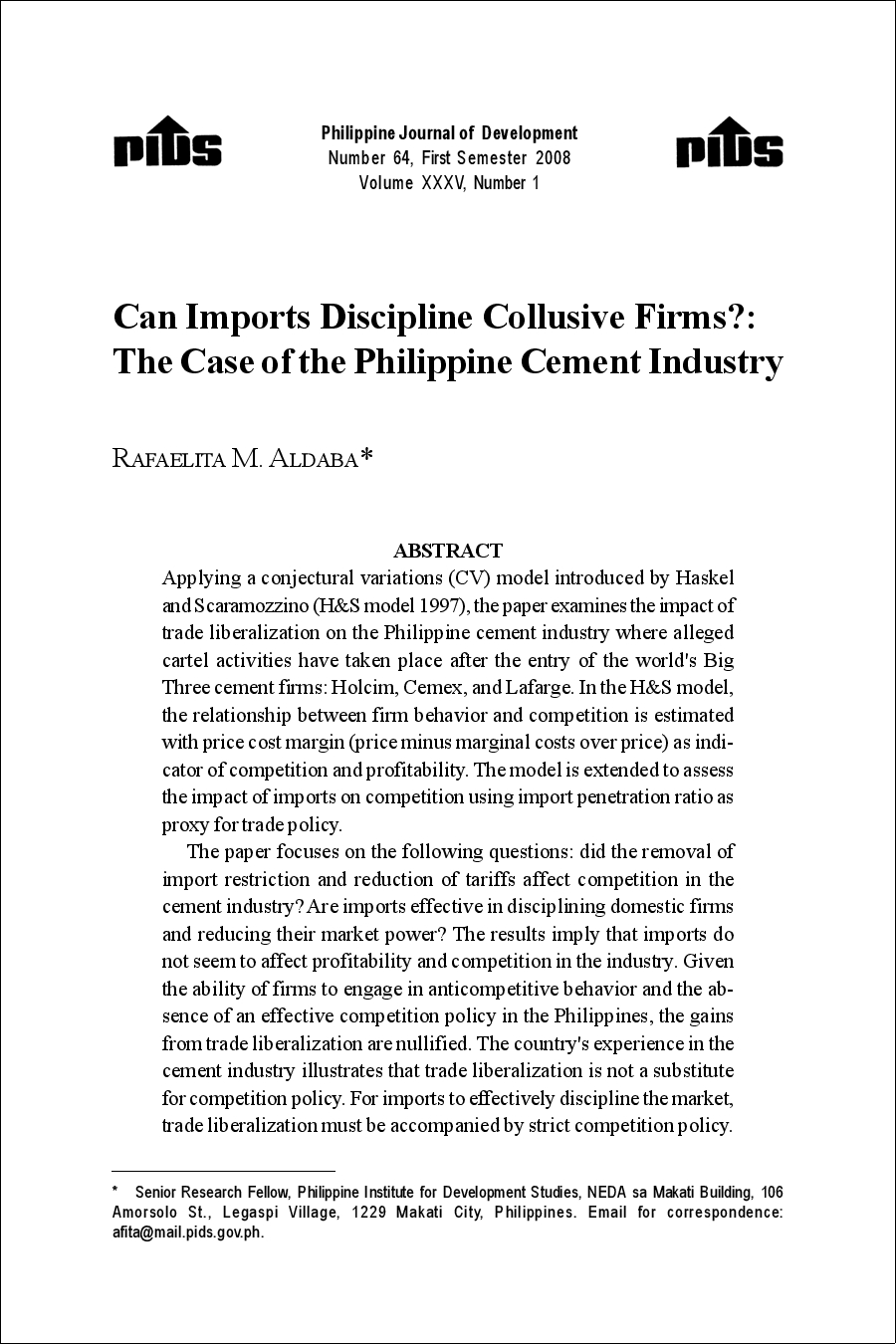Abstract
This issue presents research on trade liberalization, economic vulnerability, aquaculture, and macroeconomic policy, offering valuable insights into their implications for competition, poverty, and economic stability. One study applies the Haskel and Scaramozzino (1997) conjectural variations model to the Philippine cement industry, analyzing the impact of trade liberalization on market competition. Findings suggest that imports have not curtailed anti-competitive behavior, highlighting the need for a robust competition policy alongside trade reforms. Another paper examines household vulnerability to income poverty, using a modified probit model to estimate risk levels. Results indicate that vulnerability rates exceed poverty rates, emphasizing the importance of policies that mitigate income shocks. A study on Laguna de Bay’s fishpen and fishcage industry explores its economic contributions to fish production, employment, and public revenues. The findings underscore the need for careful policy decisions to balance economic benefits with environmental concerns. Lastly, an empirical analysis of the Phillips Curve in the Philippines from 1980 to 2006 finds a long-term relationship between inflation and unemployment but no direct causality, adding nuance to macroeconomic policy discussions.
Articles
SHARE
